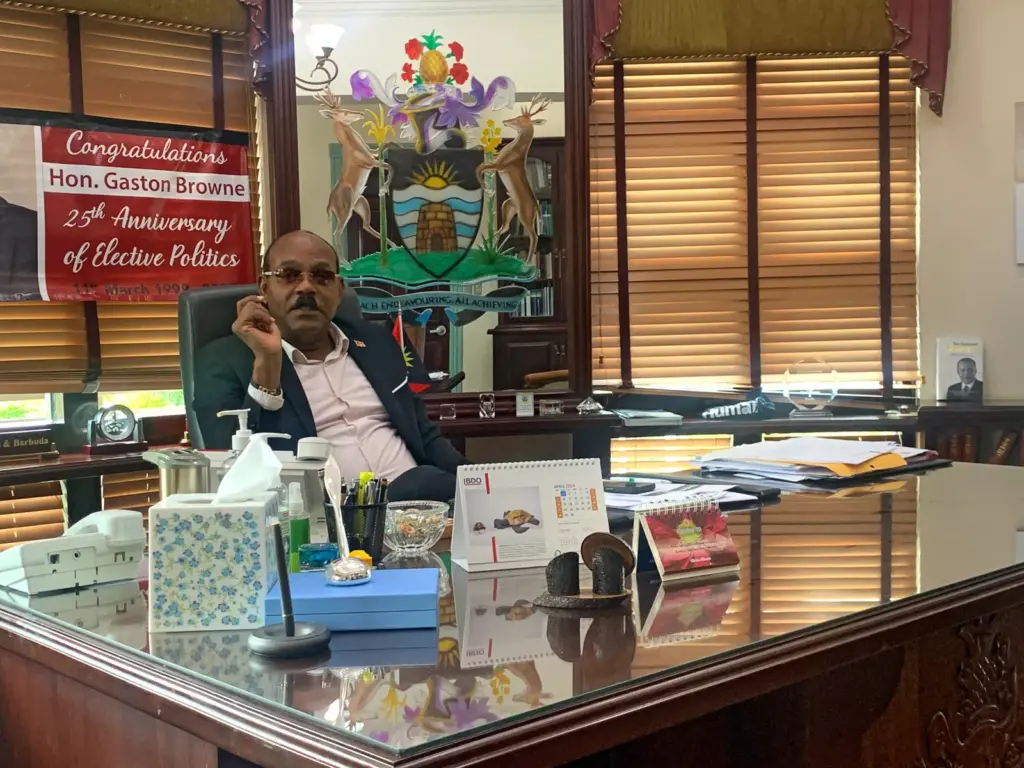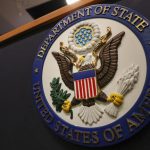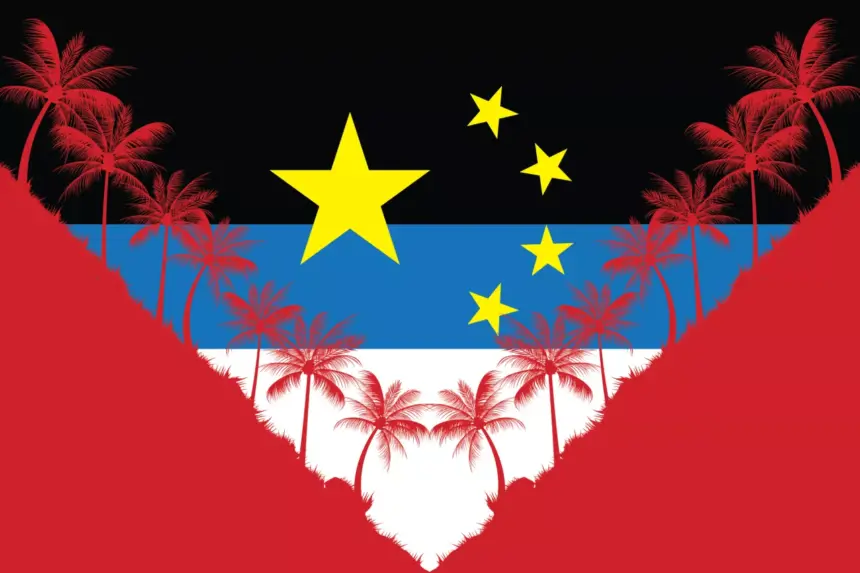( Newsweek) In a Caribbean island just 220 miles from the shore of the U.S. Virgin Islands, a black-clad Chinese security guard swept an arm at more than a thousand acres of woodland and a glittering, aqua-green marine reserve beyond.
“It’s like a small country,” he said in Chinese.
This natural paradise on the island of Antigua, where officials will study the thoughts of Xi Jinping, is about to be razed for a Chinese-run special economic zone. According to documents reviewed by Newsweek it will have its own customs and immigration formalities, a shipping port and a dedicated airline and will be able to issue passports. It will establish businesses offering everything from logistics to cryptocurrencies, facial surgery to “virology.”
China, its state-owned companies and aligned private businesses are expanding rapidly in the island nation of Antigua and Barbuda and in other Caribbean countries in this strategic region long known as “America’s third border,” according to a Newsweek investigation of government and corporate documents as well as interviews with Antiguan leaders.
China’s growing regional presence is potentially the greatest external challenge to the United States in the Americas since the Soviet Union set up in Cuba in the 1960s—and the U.S. military is concerned.
“We are aware that China may use its commercial and diplomatic presence for military purposes. In Asia, Africa and the Middle East, China has already abused commercial agreements at host-country ports for military aims; our concern is they may do the same in this region,” a spokesperson for the Florida-based Southern Command (SOUTHCOM) told Newsweek.
Hundreds of millions of dollars of loans and grants from China and extensive construction by Chinese state-owned companies of critical infrastructure including ports, airports and water systems are turning Antigua—once considered part of America’s “backyard”—into China’s front yard, critics say.
Antiguan Prime Minister Gaston Browne was effusive in his praise for China and its leader Xi in a Newsweek interview in St. John’s, capital of this nation of just 97,000 people and 170 square miles that is about the size of the New York City borough of Queens.
Western countries were not giving the help Antigua needed, Browne said.
“I see China, though, as a country that stands on truth, and a country that, you know, at least has some level of empathy for small states, and generally for poor and dispossessed persons globally,” said Browne.
On a weeklong trip to China in January, Browne opened Antigua’s embassy in Beijing—the countries have had diplomatic relations since 1983—and ministers signed at least nine memorandums of understanding on everything from granting maritime rights to Chinese shipping and sailors to committing Antiguan officials to study Xi Jinping Thought on Governance.
“One of the things that we have followed with Xi Jinping is he seems to have a base, a global view in terms of a common humanity,” said Browne, who has been in power for a decade.
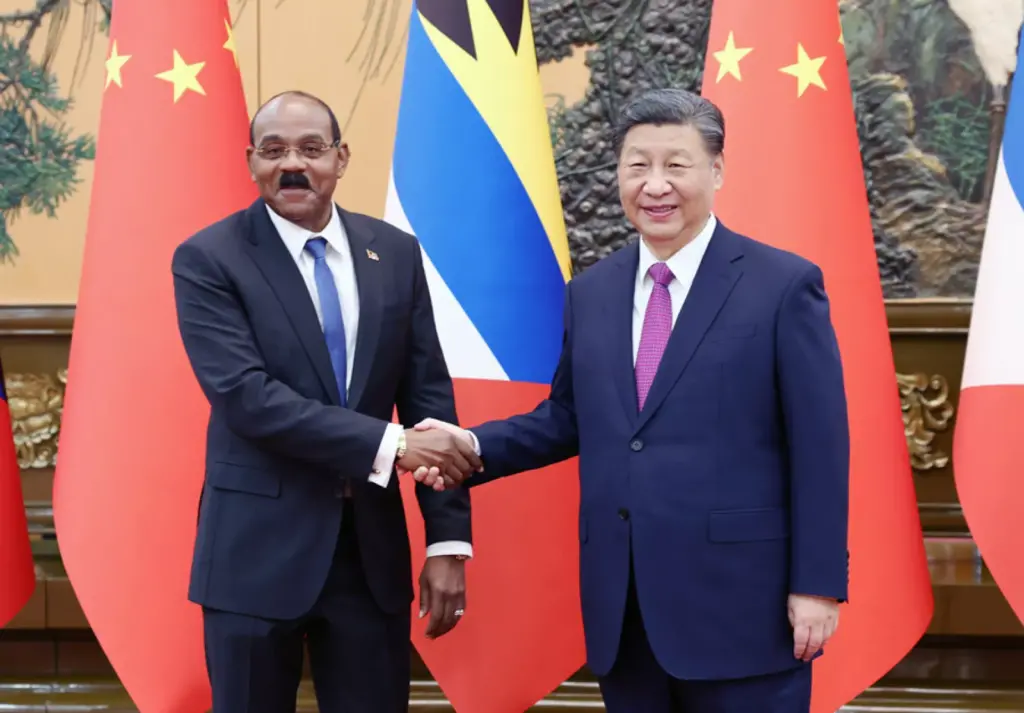
Prime Minister Gaston Browne of Antigua meets with Chinese leader Xi Jinping in Beijing, January 2024.PRIME MINISTER’S OFFICE
By backing its words with dollars China had become Antigua’s “lender of first choice,” offering 2 percent interest rates and a five-year moratorium on repayments, Browne told Newsweek. Antigua joined China’s Belt and Road infrastructure initiative in 2018, one of the first among about half a dozen Caribbean nations, making it part of a global chain of influence managed from Beijing.
Antigua has traded its sovereignty, I think most of us believe, to China. I think China wants a foothold in more strategic places, as a superpower.”- Gisele Isaac, chairwoman of the United Progressive Party
Diplomats from Europe and Asia in the region suspect that China’s interests in Antigua are more than just economic. Its new embassy in St. John’s—dubbed The Fortress by Antiguans for its large size and tight security—may be a regional intelligence center alongside decades-old facilities that the U.S. says Beijing uses to spy from Cuba. While the diplomats declined to provide details, they said that because of close U.S. attention on Cuba, Antigua was both an expansion and a “fall back” position.
SOUTHCOM told Newsweek, “Given the breadth of investment into logistics infrastructure China has made in the Caribbean, we are concerned that China could task its state-owned enterprises and diaspora to conduct intelligence or influence operations against the U.S. and our partners in the region for military purposes. Those concerns are further heightened when you consider the Chinese Communist Party’s practice of targeting, recruiting and bribing officials.”
The Chinese embassy did not respond to emails requesting comment on China’s relations with Antigua or whether there was an intelligence base in the embassy. A person answering the telephone declined to take questions. In Beijing in January before Browne’s visit, foreign ministry spokesperson Mao Ning called Antigua “an important cooperation partner of China” in the Caribbean.
Browne told Newsweek that suggestions that China was operating an intelligence base were “utter rubbish.”
In the past, the United States guarded its hold on the Americas closely. The 19th century Monroe Doctrine held that any intervention in the political affairs of a state in the Americas by foreign powers was a potentially hostile act. The world was brought to the brink of nuclear war in the Cuban Missile Crisis in 1962 over U.S. objections to Soviet nuclear weapons deployments in Cuba. And in 1983, U.S. forces overthrew a pro-Soviet leader in Grenada.
“Traded its sovereignty”
Some Antiguans are uneasy at China’s growing influence in the country, a former British colony built partly on slavery. It still has King Charles as its head of state, although it is planning a referendum on whether to change that.
“Antigua has traded its sovereignty, I think most of us believe, to China,” said Gisele Isaac, chairwoman of the United Progressive Party, in an interview in her home outside the capital. “I think China wants a foothold in more strategic places, as a superpower.”
“I think that this administration has become, and that’s our concern, overly reliant on one partner, that partner being China,” Isaac said.
Increasingly, people were afraid to speak out about the flourishing relationship especially if they did business through the China-built shipping port in St. John’s, she told Newsweek: “Everybody feels like their testicles are in a vise; that if you say the wrong thing, if you align yourself the wrong way, you’re putting yourself in danger,” Isaac said. “At night, I switch on my alarm and say my prayers.”
Algernon Watts, an opposition member of parliament and a radio show host, has similar concerns.
“In the Caribbean, money is king,” he said. “China needs a firm grasp in the region, and Antigua is a more than willing partner.”
“It’s a bold move. The Caribbean is very strategic geography for the U.S. … Mao and Stalin could only have dreamed of the success they are now having.”Anne-Marie Brady, a professor of political science at the University of Canterbury
Several ministers interviewed by Newsweek declined to say how much Antigua owes China.
The Antigua Finance Ministry—Browne is also the finance minister—did not respond to an emailed request for figures. A loans tracker shows $176 million in Chinese loans through 2022. More is in the pipeline—for example Antigua will receive about $60 million from China for a water repiping project, one of the memorandums of understanding agreed in Beijing in January, Information Minister Melford Nicholas told Newsweek.
That already works out at more than $2,400 in Chinese loans per person in a country where annual gross domestic product per capita is about $19,300, according to the World Bank.
China has massively expanded its overseas footprint over the past decade through its trillion-dollar Belt and Road Initiative, sealing its presence around the world. Critics of the program accuse China of pursuing colonization by stealth through locking countries in with loans they could not get elsewhere as it rivals the United States, for example in Laos, Sri Lanka and in African nations. China counters that its investment is about “win-win” cooperation.
growing presence in the Caribbean is a particular challenge to America, analysts say.
“It’s a bold move. The Caribbean is very strategic geography for the U.S.,” said Anne-Marie Brady, a professor of political science at the University of Canterbury in New Zealand who tracks the Chinese Communist Party worldwide and notes similarities in the Caribbean to China’s courting of small island states elsewhere.
Brady also believes China’s Xi is working hand in hand with Russia’s President Vladimir Putin, saying: “Mao and Stalin could only have dreamed of the success they are now having.”
China had been “very successful” at diplomacy in the Eastern Caribbean over the past five years said the spokesperson for SOUTHCOM, which is headquartered in Doral, Florida. ”They may be seeking a large logistics foothold in the Eastern Caribbean to enable commercial activity in the Western Hemisphere.”
White sand beaches
For Americans, the Caribbean might conjure images of white sand beaches and turquoise seas, honeymoons, rum and spicy grilled “jerk” chicken.
China sees a bigger value, said Evan Ellis, a professor of Latin American studies at the Strategic Studies Institute of the U.S. Army War College in Carlisle, Pennsylvania.
“China inherently regards the Caribbean as a strategic place where it wants to be, and that it wants selectively to dominate without alarming the United States excessively,” Ellis told Newsweek, adding that China had also built a web of friendly states including Dominica, Grenada, Barbados and, “to some extent,” Jamaica.
“The U.S. has been monitoring it, but the situation has not really raised alarm bells in Washington, just because kind of the slow, low-key, gradual nature of that kind of accumulation of influence,” Ellis said.
n a statement, the State Department told Newsweek: “The United States and Antigua and Barbuda maintain strong and historic ties,” with “robust cooperation” in a regional security initiative to counter firearms trafficking and crime, and other efforts in climate and development.
Zone of influence
The new special economic zone, incorporated on January 16 in St. John’s, starkly underlines Chinese ambitions in Antigua. Known by its acronym SEZH, it takes over from a previous Chinese venture that largely failed to develop the land. The government says it expects $100 million in fresh investment. The new owners have already acquired the assets of a local company—also owned by Chinese interests—for $25 million, according to documents seen by Newsweek.
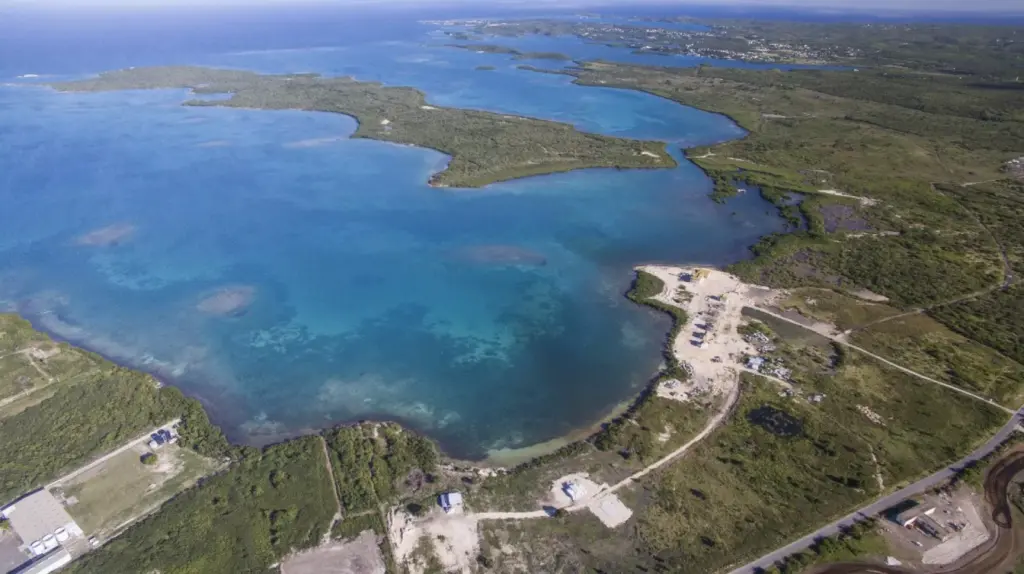
The Special Economic Zone (Antigua & Barbuda) Holdings Ltd has secured privileges that resemble those of a small state in the northeastern corner of the island adjacent to Antigua’s biggest military base—and a former U.S. base.
According to the terms of its government-issued license dated 2024, SEZH will set up an independent Zone Management Committee to provide “Customs, Immigrations and Police Services to and for the Zone.” A fishing company “ocean monitoring team” will help the Antiguan coast guard to “regulate” territorial waters. There will be no restrictions on commercial activities—permissions will be granted by the committee, not by the Antiguan government—and zero taxes and customer and asset confidentiality.
Taking up 1,600 acres of land, triple that including the waters between islands, the zone will have the island’s second commercial port after the one built in St. John’s by China Civilian Engineering and Construction Company, a China state-owned company.
According to documents reviewed exclusively by Newsweek, a dedicated airline for the zone called ABSEZ International Airlines Ltd. was incorporated on January 31. In addition to carrying passengers and goods and even constructing buildings, it can undertake “any other business” that enhances its profits.
An “Antigua and Barbuda International CRYPTO Services Zone” will offer a full suite of cryptocurrency operations from mining to dealing. The focus on cryptocurrency echoes another Chinese-backed zone in the Marshall Islands—one that was stopped when the couple behind it were jailed for bribery.
Newsweek could not establish the full identities of all the investors and what links they might have to Chinese authorities.
Documents from a directors’ meeting of the new zone company, seen by Newsweek, identify Duan Hongtao as a chairman. “Hongtao VIP777 Duan,” an Antiguan citizen, is listed on the passenger manifest of a private plane that flew from London to Antigua around the time of the deals, with five businesspeople on board. Duan’s name and his birth date match an Interpol red notice for a Chinese citizen who allegedly defrauded a bank in China of $300 million. Allegations of criminal activity have not previously been a bar to Chinese people abroad serving the interests of the ruling Communist Party.
Also on the plane: Chinese citizen Zhang Yu, or Peter Zhang, who had previously worked with China Railway Group, a state-owned enterprise. The independent Antiguan media Island Press Box first reported the flight.
A person called Changli Zhang—whom a zone guard identified to Newsweek as his boss—also attended the directors’ meeting, the documents show. Contacted by telephone, Zhang said he was “just an ordinary worker” and declined to comment.
Chinese citizen involved in the zone was flying regularly between Antigua and the United Arab Emirates where he was engaged in another port project, according to current and former U.S. government sources who spoke on condition of anonymity because of the sensitivity of the matter. The United States objected to what it suspected was the construction of a Chinese military facility in Khalifa port in the UAE, in 2021.
“There is a murky gray zone between what is legitimate business interest and to what extent these businesspeople are trying to serve the interest and agenda of the Chinese government,” said Leland Lazarus, of Florida International University’s Jack D. Gordon Institute for Public Policy and an expert on China-Latin America relations.
China’s front yard
China’s footprint in Antigua and Barbuda grew fast during the last decade of rule by Browne’s Antigua and Barbuda Labour Party.
In 2020, CCECC, a subsidiary of state-owned China Railway Construction Corporation, set up its regional headquarters in Antigua next to the national Sir Vivian Richards Stadium, also built by China. Chinese money rebuilt V.C. Bird International Airport.
There is a Confucius Institute at the Antigua branch of the University of the West Indies and the Chinese government offers coveted scholarships. About 88 Antiguan students are studying at universities in China, Nicholas said.
Charles Fernandez, the minister for tourism and aviation, told Newsweek that Chinese generosity contrasted with the United States, which he said offered only athletic scholarships: “As long as we can run, jump and skip.”
The State Department told Newsweek that more than 150 Antiguans were studying at colleges and universities in the United States. It said it hosted college fairs and regularly assisted people “to access resources and scholarship opportunities.”
“The Americans have never invested anything in Antigua. When they closed their last base, they took everything and left,” Fernandez said, referring to a radar tracking station that closed in 2015.
New electric taxis and buses from China will arrive soon, with China’s BYD auto company launching a local dealership in April, Browne said.
There is a murky gray zone between what is legitimate business interest and to what extent these businesspeople are trying to serve the interest and agenda of the Chinese government.”Leland Lazarus of Florida International University’s Jack D. Gordon Institute for Public Policy
Trouble in paradise
Apart from geopolitical concerns, the planned zone has also raised environmental worries.
The dark head of a giant sea turtle surfaces near Foster Derrick’s boat, as the passionate environmentalist steers past the tangled mangroves of Antigua’s biggest marine reserve, which the future zone intrudes on. Starfish and sponges pop in pink and orange on the seabed below.
Derrick has worked for years to protect the coasts and islands of the reserve which is home to the endangered Antiguan racer snake. Dredging and other damaging activities are specifically forbidden here, but also specifically permitted by the government-issued licence.
“It’s absurd,” said Derrick. “This is just a big land grab.”
Already, a road has been built through some mangroves cutting them off from the fresh and sea water mix they need, thus killing them—bad for Antigua since mangroves play a vital role in protecting coastal areas during hurricanes, Derrick said.
As his boat rounded a headland marked by new buildings, a man all in black took out a mobile phone to film the environmentalist. Derrick laughed it off, but later called it “belligerent.”
“My aim of trying to protect the environment is specifically for future generations,” he said.
Asked how an economic zone can be built within a nature reserve, Fernandez pointed to new provisions for environmental protection in the licence order.
But the agreement also allows for the zone to expand.
Diplomatic fortress
China’s new embassy on Antigua is already a symbol of its power. The five-acre compound—sold by the Antiguan government to China for one Eastern Caribbean dollar, or U.S. 40 cents – is so imposing that Antiguans and tourists stop to photograph its several yards-high concrete walls topped by more than 30 surveillance cameras and four layers of electrified wire. Metal wedge barriers guard two visible entrances.
Nothing else approaches this level of security in Antigua where a car can drive up to parliament unchecked.
Speaking on condition of anonymity, two regional diplomats said that they suspected the embassy was being used as an intelligence base, or a listening post.
Publicly available information about the number of people working at the embassy was “not in line” with its size: “We can reasonably think that there are hidden staff and that those people’s portfolios will be hidden from sight too,” said one.
SOUTHCOM said it had not identified technologies such as satellite “reference stations” that would equip it as a “listening post,” but that it was verifying the extent of such Chinese structures in the Caribbean.
“We assess that any intelligence activities conducted by the People’s Republic of China in the Caribbean will almost certainly be targeted at U.S. and regional commercial and military movements in the Gulf of Mexico and the Caribbean,” the spokesperson said.
A key reason for China to strengthen its presence is to further isolate Taiwan, which Beijing claims. Seven of the 12 states that recognise Taiwan are in the Caribbean and Latin American region. Each has a vote in the United Nations where China seeks to build support for its policies. Chinese diplomats from the Antigua embassy regularly approach officials in the Caribbean countries that have ties with Taipei, a diplomat in a neighbouring country said.
In comparison to China’s imposing operation in Antigua, the U.S. shuttered its embassy in 1994, relocating to Barbados more than 300 miles and over an hour away by plane. The U.S. has a consular agent in Antigua—office hours are three half-days a week, according to the website. American diplomats fly in to conduct business with a laptop and a backpack.
The State Department plans to expand its diplomatic footprint in the Caribbean, it told Newsweek in an emailed statement.
“The Biden-Harris Administration has begun the process of establishing two new embassies and an additional diplomatic support presence in the eastern Caribbean,” a spokesperson said, without specifying where or when. “This effort…recognizes that deepening our relationship with Caribbean nations requires regular exchange between our governments at all levels, and is in response to longstanding requests from our Caribbean partners.”
Deepening ties
Working for ever-deepening cooperation with China, the agreements Browne and other ministers signed in Beijing include one for visa-free travel between the two countries.
Another is for vastly expanded business cooperation, part of plans for Antigua to become a Chinese shipping hub for the region. A third deepens media cooperation, and a fourth says joint seminars will be held in Antigua and China for officials to study Xi Jinping’s thinking on governance and development.
Browne downplayed any ideological commitment, saying that it would not be mandatory to study Xi Thought but that it made sense, just as officials should understand the thinking of U.S. President Joe Biden.
“I can say definitively my government is not into any such ideology,” he said. “We pursue what we consider to be bespoke governance.”
“We are satellites of no one,” he added. “In fact, we find the PRC to be far more respectful of us as a small state than other large countries globally. Some countries treat us as elegant nuisances, compared to China that treats us with mutual respect.”
